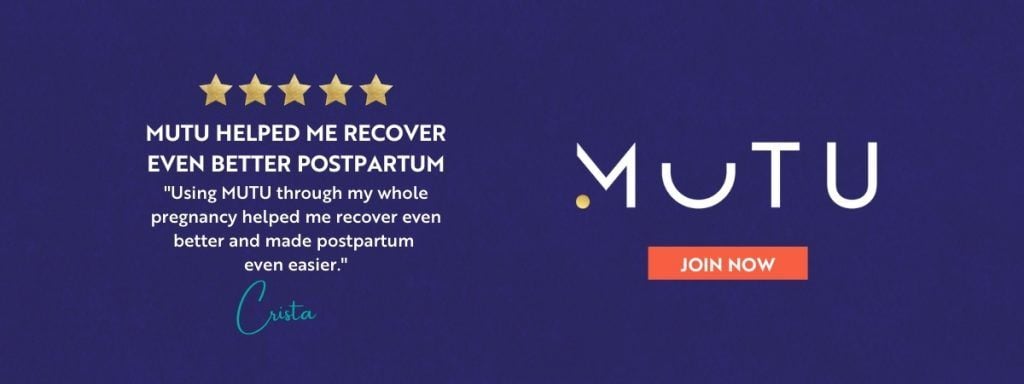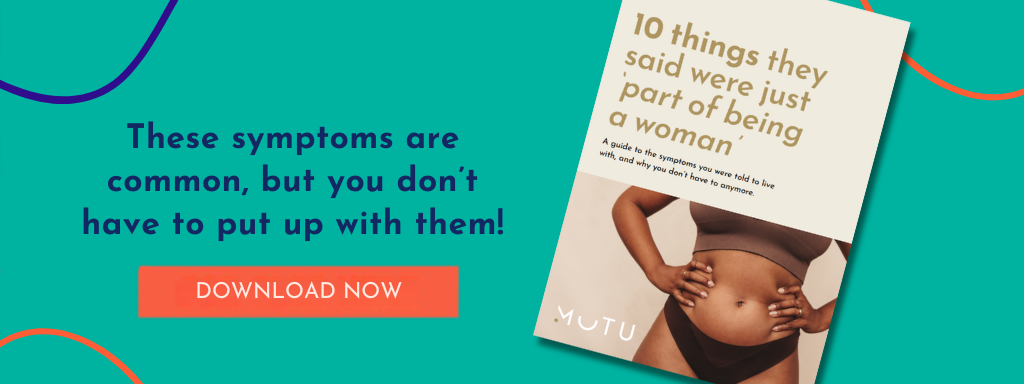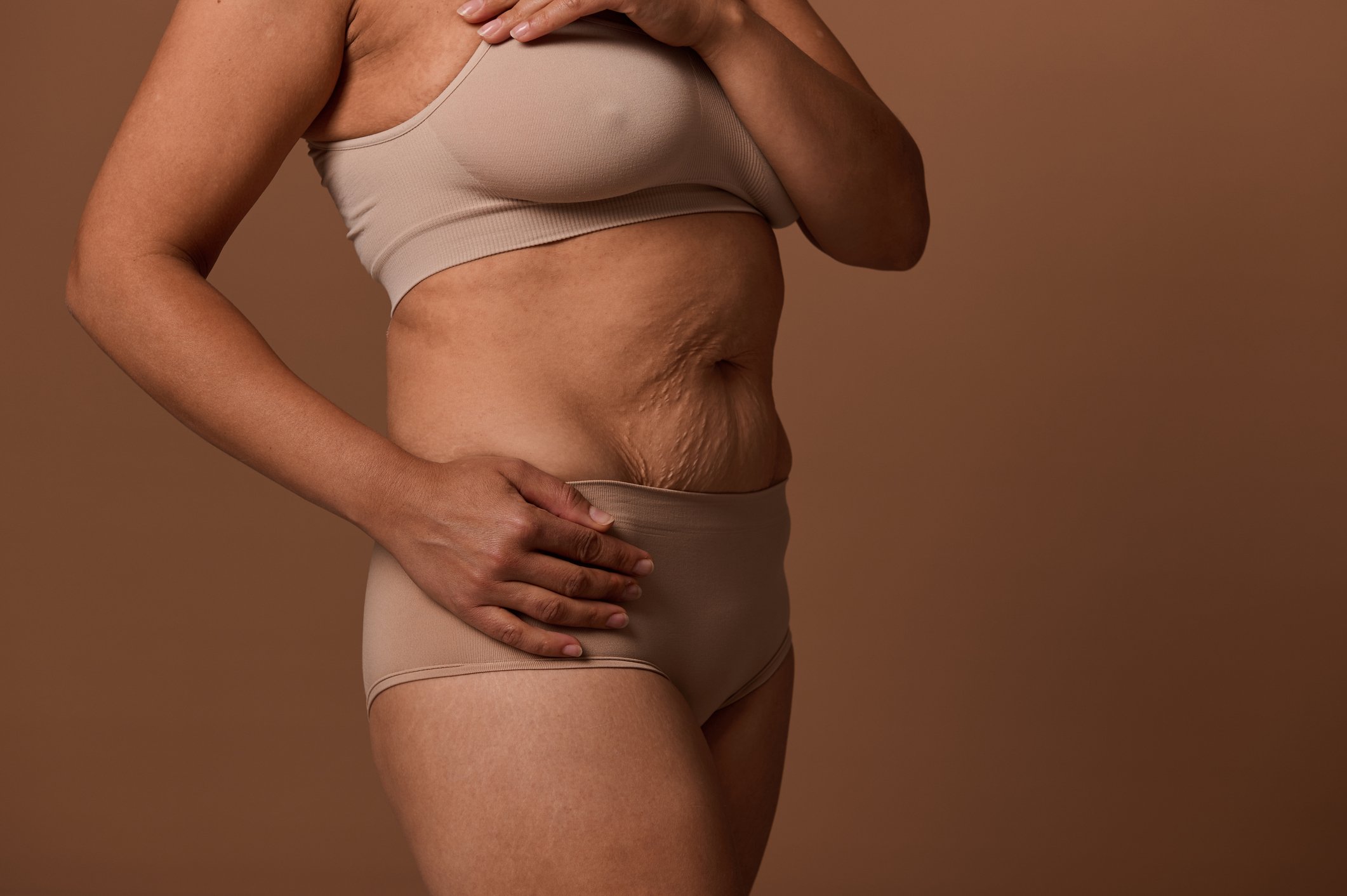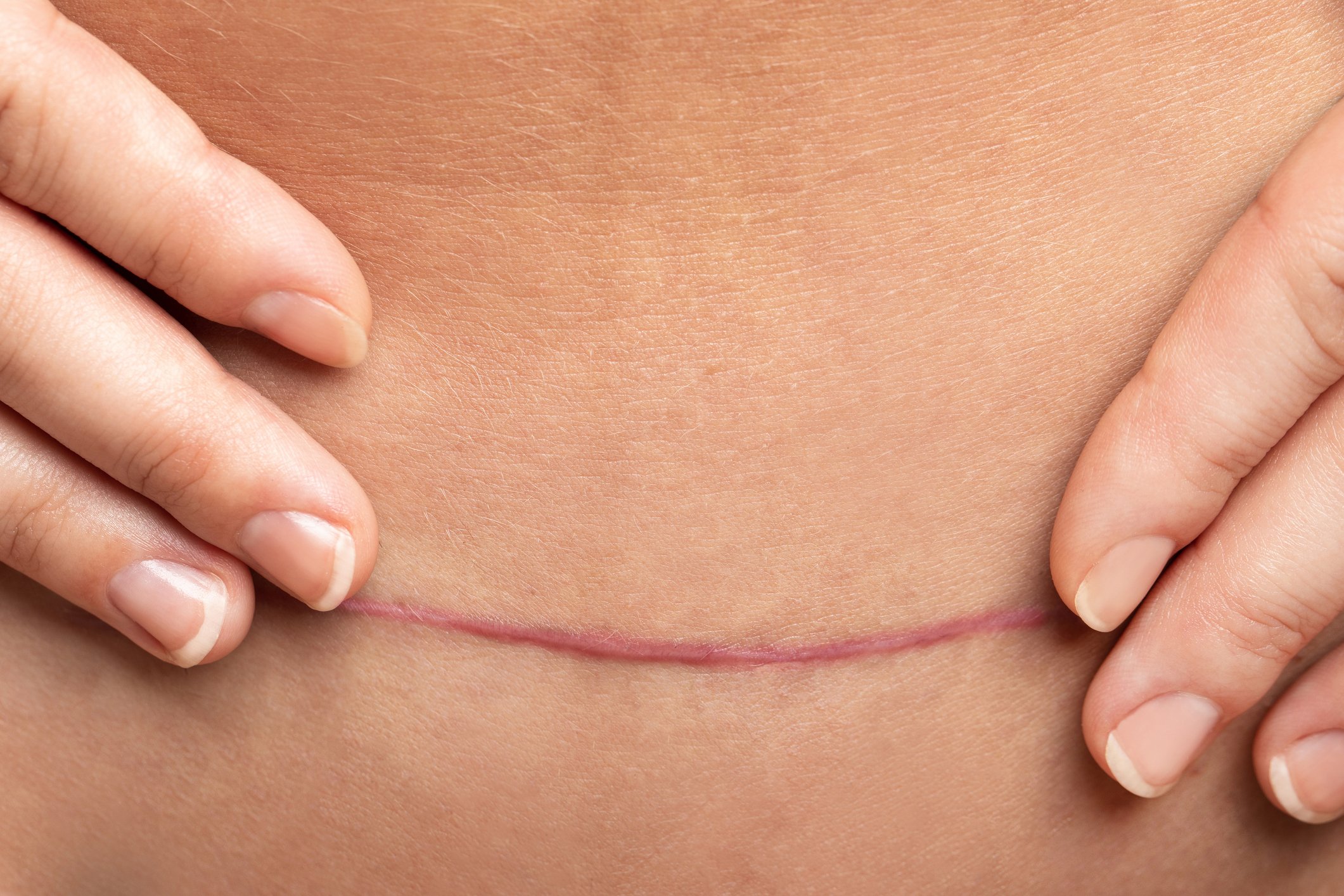This four-part MUTU video series, “Postpartum Weight Support: What Really Matters” cuts through the bounce-back pressure and food rules to give you what your body truly needs after birth. Real nourishment, real strength, and real recovery on your terms, not the algorithm’s.
What this video is about:
Cravings after birth aren’t a failure of willpower. This video helps you understand what’s really behind cravings, biologically, emotionally, and socially, and gives you practical ways to meet your needs without shame.
It’s 3pm. The baby is finally asleep. You walk into the kitchen for something, maybe a hot drink, maybe just a moment, and before you’ve even registered it, you’re standing at the counter with a snack in one hand and the other hand already reaching for another.
Then comes the voice:
“Why am I doing this again?”
“Where’s my discipline gone?”
“I was doing so well earlier…”
Let’s stop right there. That voice, that guilt, that internal narrative telling you you’ve failed, it’s not telling the truth. You are not broken. You are not failing. And cravings are not the enemy.
Especially after birth, cravings are communication. They are your body’s way of saying something needs attention. They might be asking for rest, for fuel, for a break from intensity. But in a world that tells you control is success and restraint is virtue, cravings are framed as weakness.
Let’s unpack what’s really going on.
Because this isn’t about “bad choices.” It’s about survival strategies.
When you’re postpartum, you are healing from a massive physical event. Your body is in active repair mode. Your hormones are shifting daily. If you’re breastfeeding, your energy demands are higher. You might be sleep-deprived, overstimulated, and isolated. And under those conditions, your brain and body are trying to help you cope.
Cravings often happen when:
- You’ve gone too long without food
- Your meals lacked protein or fat
- You’re overstretched emotionally
- You’re exhausted and underslept
- Food has become the only reliable form of comfort or pause
Sound familiar?
It’s not about willpower. It’s about physiology and unmet needs.
When your blood sugar drops, your brain signals urgency. You reach for sugar, for starch, for fast energy. That’s not you being weak. That’s your body doing exactly what it’s meant to do, protect you from running on empty.
If food is the only space where you’re getting pleasure or comfort right now, it makes sense that your brain would seek it out. Food is soothing. It’s regulating. And in a context where nothing else feels consistent, food becomes one of the few things you can reach for quickly.
So instead of asking, “How do I stop craving this?”
Start asking, “What is this craving trying to help me with?”
That shift is powerful.
Let’s take a common example. You’re craving something sweet. Not just a passing thought, you feel drawn to it. You’ve tried to ignore it, drink water, distract yourself. But it keeps pulling at you.
Pause and ask:
- Did I eat a full meal in the last four hours?
- Did I include any protein or healthy fat?
- Have I been on my feet all day without rest?
- Am I emotionally spent, checked out, or overstimulated?
If the answer to any of those is yes, that craving makes sense.
Respond to the need first. Eat something grounding. Sit down if you can. Breathe. And if after that, you still want that snack, eat it. Enjoy it. It’s just food, not a referendum on your worth.
This isn’t about giving up on nutrition. It’s about creating space for food to be part of your healing, not a place of stress or shame.
And here’s where it gets even more important: the culture you’re living in is working against you
When your social feed is full of “What I Eat in a Day” videos that showcase perfectly portioned meals with no mess, no second servings, and no visible hunger, it’s easy to feel like you’re doing something wrong.
But those posts are not real life. They are curated content created for performance and validation, not actual nourishment. You are not seeing the skipped meals, the behind-the-scenes hunger, or the hours of editing that go into making that plate look effortless.
Comparison here is toxic. It leads to second-guessing your hunger, shaming your choices, and feeling like you need to justify every bite.
So here’s what helps:
- Feed yourself consistently through the day. Don’t wait until the crash. You’ll end up hungrier and less satisfied.
- Include protein and fat in your snacks. A banana with nut butter, crackers and cheese, hummus and pita, whatever is accessible and satisfying.
- Let snacks be part of your strategy, not a sign of slipping up.
- Rebuild trust. If your body has learned that food is inconsistent, it will crave more. When you show it you’ll eat regularly, the urgency eases.
Also, plan for pleasure. You do not have to earn enjoyment. A snack in the middle of a rough morning is not failure. A mouthful of chocolate while the baby naps is not cheating. Food can be grounding. It can be joyful. And when you stop moralising it, you loosen the grip of cravings.
Another layer to consider, your hormones
Postpartum hormone shifts can amplify cravings. Cortisol (your stress hormone) affects your appetite. Sleep deprivation increases ghrelin (your hunger hormone) and suppresses leptin (your fullness signal). If you’re breastfeeding, your calorie needs increase by up to 500 extra per day.
So again, this is not about control. It’s about consistency and care.
Supplements may also help. If you’re low on iron, B12, magnesium, or vitamin D, you may feel more fatigued, low in mood, or sensitive to energy dips. These deficiencies are common after birth. A multivitamin or targeted supplement plan, guided by your GP or midwife, can help support your body while your meals catch up.
At MUTU, we teach you how to understand these layers, not override them.
We don’t hand you a food rulebook. We help you:
- Recognise cravings as communication
- Nourish your body regularly and compassionately
- Make meals that are quick, realistic, and satisfying
- Rebuild a steady relationship with food that doesn’t depend on control
This work isn’t about getting it right every day. It’s about building trust in yourself again. And that starts with dropping the narrative that food cravings are something to battle. They’re part of the story. And they can lead you toward what your body actually needs.
So next time that voice starts up again,
The one that says you’ve failed, that you should have more discipline, that you should be past this by now,
Answer it with kindness.
Say,
“I’m healing.”
“I’m doing the best I can.”
“My body needs support, not shame.”
And then eat something that helps.

You don’t need to fix your appetite. You need to listen to it. MUTU helps you decode cravings, rebuild trust with your body, and eat in ways that support healing, without guilt, without rules, and without apology.
Other Videos in the “Postpartum Weight Support: What Really Matters” series:
Why Postpartum Weight Loss Advice Misses the Point
How to Nourish Your Body After Birth (Without Food Rules)
What If You Never ‘Bounce Back’? Here’s What to Focus on Instead












